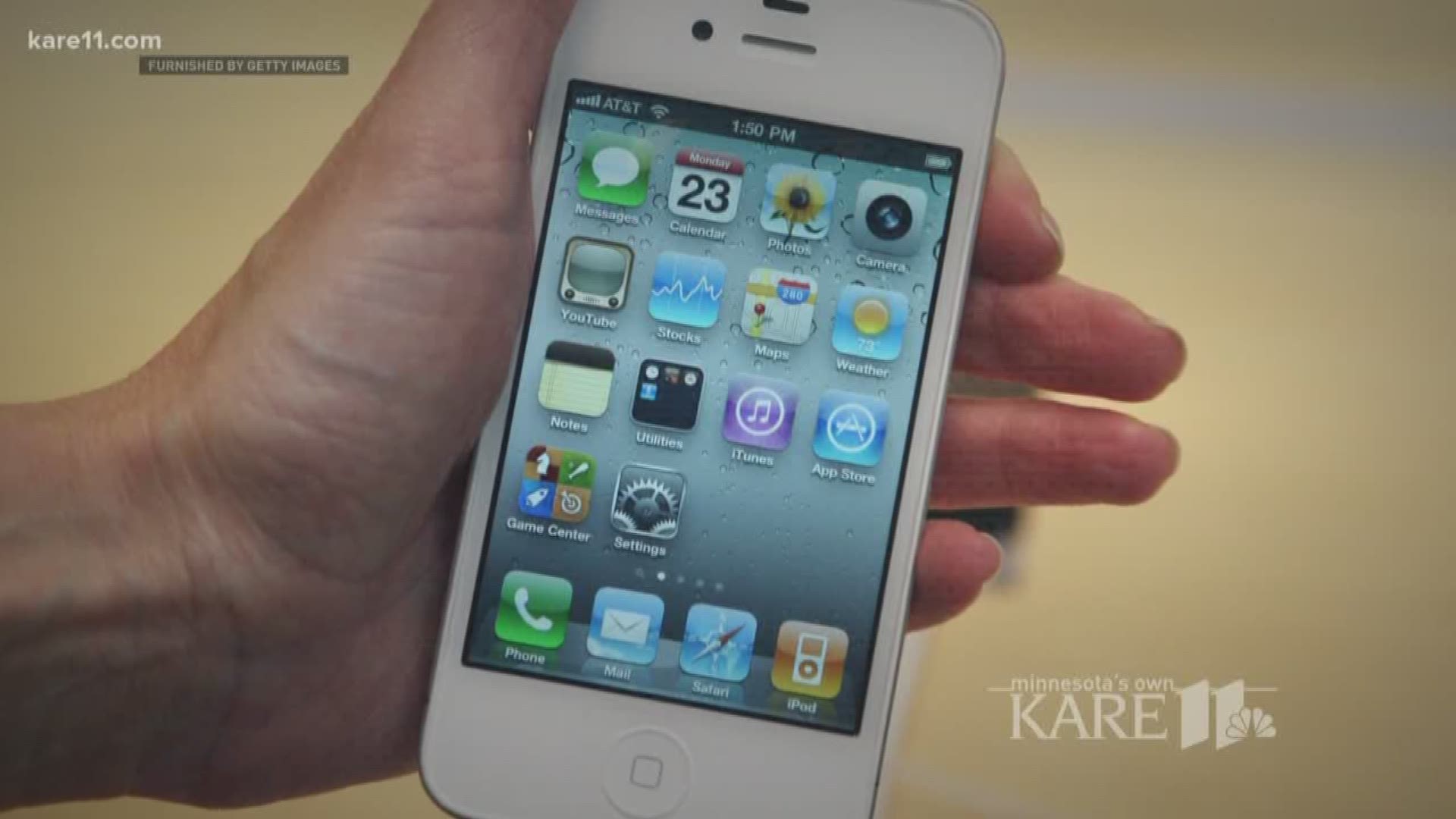When Apple founder Steve Jobs said they would re-invent the phone, what he didn't mention is that they would continue to re-invent it every year or two.
And with each new iPhone model, has come an updated operating system with new features, which owners of previous phones can also download.
But what some owners of older generation iPhones notice is that as they keep updating new software -- as recommended by Apple -- their older phones eventually slow down. So much, that they feel the need to buy a new one again.
“I would say every company tries to maximize the number of times they can sell you something. So, they're finding ways to let you know, you've got a slow phone, there's better newer stuff out there,” said George John, U of M marketing professor.
John is very familiar with the concept of "Planned Obsolescence," defined as "a policy of producing consumer goods that rapidly become obsolete and so require replacing."
He says smartphone companies don't practice full-blown planned obsolescence, however.
“They're trying to nibble around the edges to make it harder for you to use an older object,” John said.
You ever notice how insistent your phone can be in "suggesting" you download and install the latest update? It's not required, but the company almost makes it harder not to update.
“Keeps nagging you. Why are you not upgrading your software? Hey. Security software there's this and there's that."
“Apple optimizes for the new. They try to bring as many of the old devices along as long as they can,” said Jon Rexeisen, the top iOS app developer at The Nerdery.
Rexeisen says Apple develops its new phones hand-in-hand with its new software. Fully integrated. Meanwhile, the new software works on the old phones. Just not as well.
“That's why some of those new features just literally can't be faster, because of the way their processors actually integrated into the design process,” Rexeisen said.
What would happen if you bought an iPhone and never updated the operating system or any of the apps?
“Really it would feel about the same as it always has,” he said.
But despite retaining all its snappiness, Rexeisen says there's a danger in that strategy, because operating system updates also patch security flaws.
What's the risk of leaving these security flaws on your phone? What's going to happen?
"The most serious way this could happen is you could have a remote exploit," Rexeisen said. "Someone external of your phone could send you maybe a text message and say click here, you click on it, and then someone could have access to your phone."
More likely, Rexeisen says, your phone might crash from time to time.
So, what should an iPhone user do?
Rexeisen suggests researching the new features included in iOS downloads and weighing whether they are worth a slight performance decrease.
And if you have the oldest phone model compatible with the newest iOS, he suggests sticking with the older software.
For example, if you have an iPhone 5S, maybe avoid iOS 11.
“If you're one step up from the bottom, you're usually pretty good for upgrading,” Rexeisen said.
Android users face the same frustration with yearly updates. And experts say the slowdown can be worse in some phone models because the operating system is not optimized for all of them. The auto-updates of the OS and the apps can be turned off.
“I think they're justified,” John said.
Still, he understands the frustration that comes when adding something new can make your phone feel even older.

